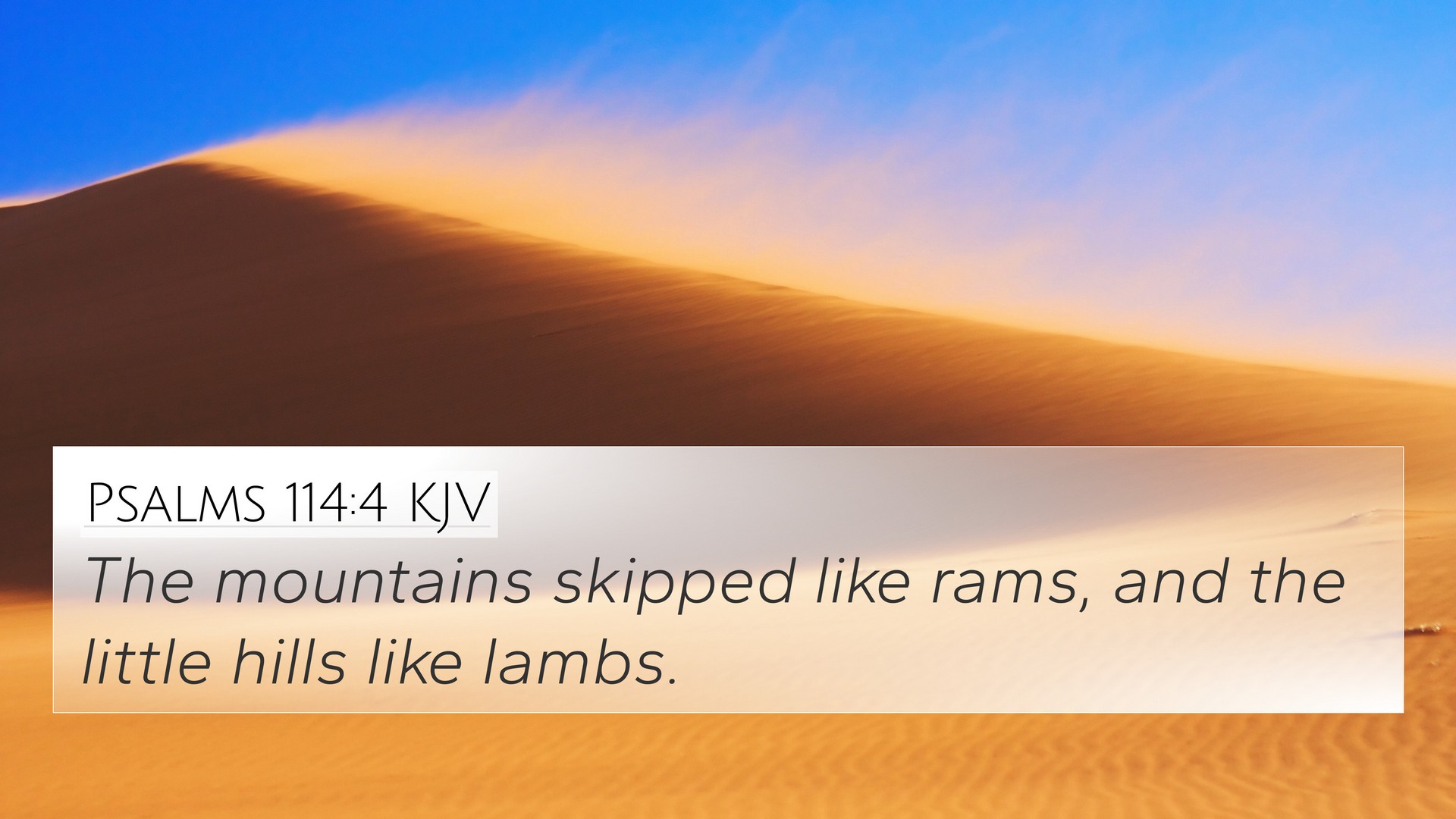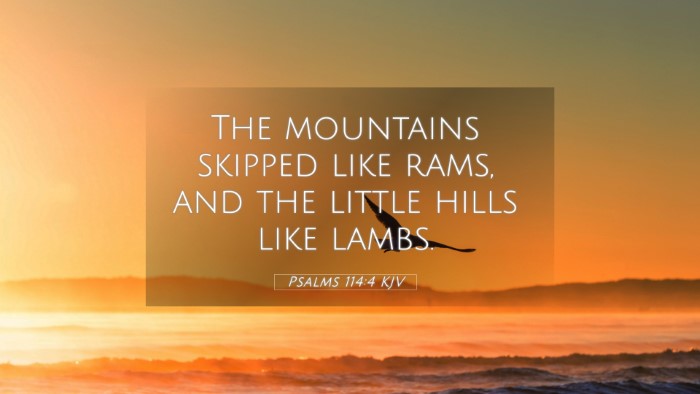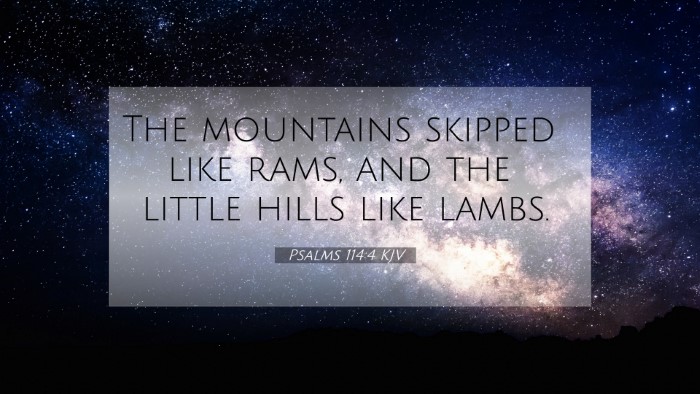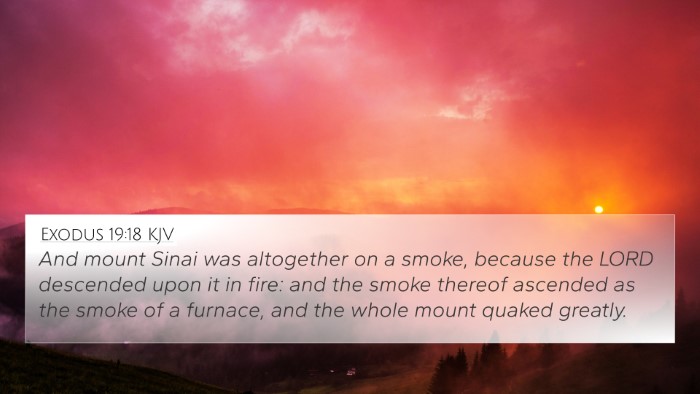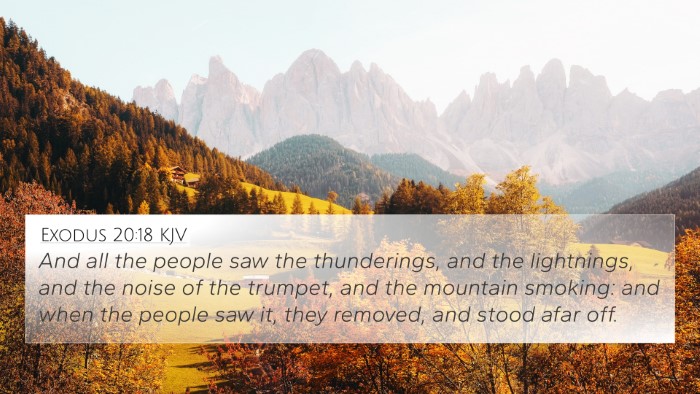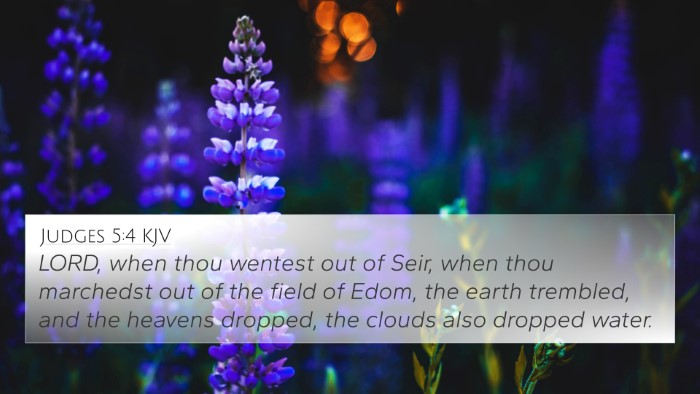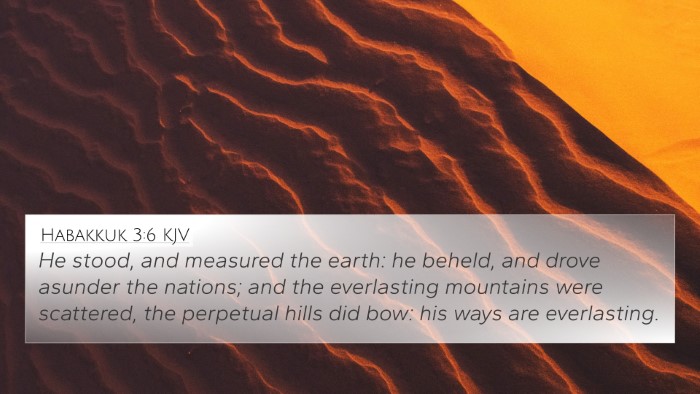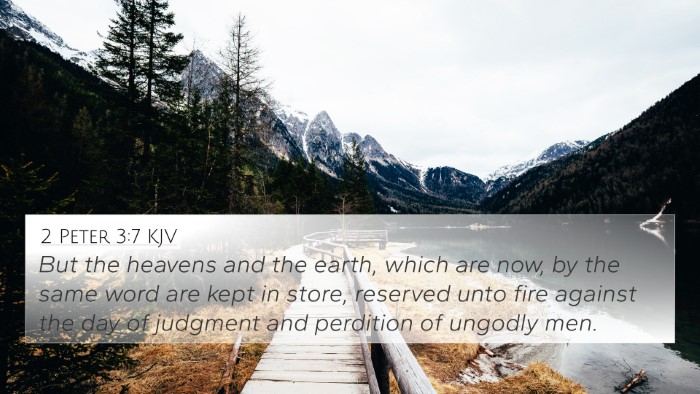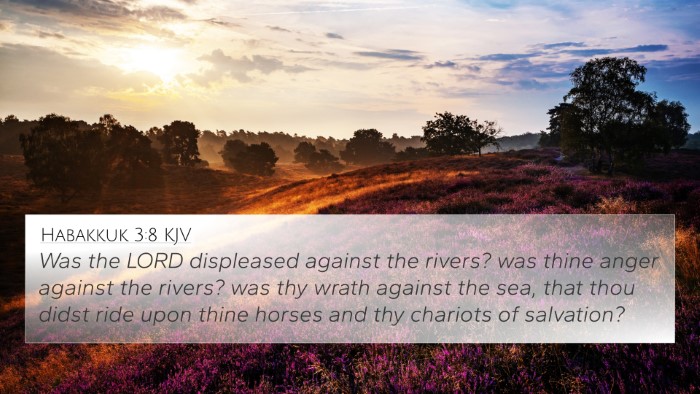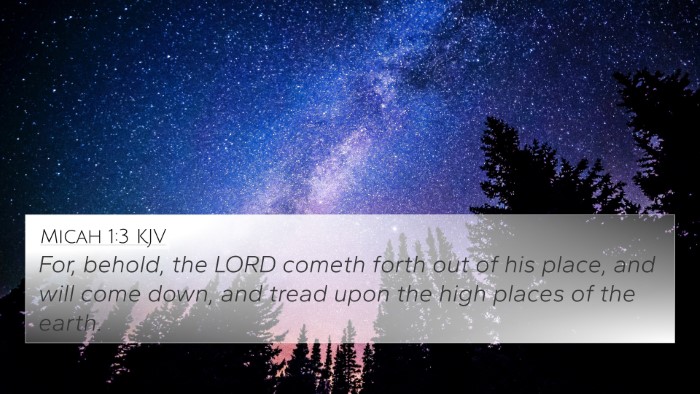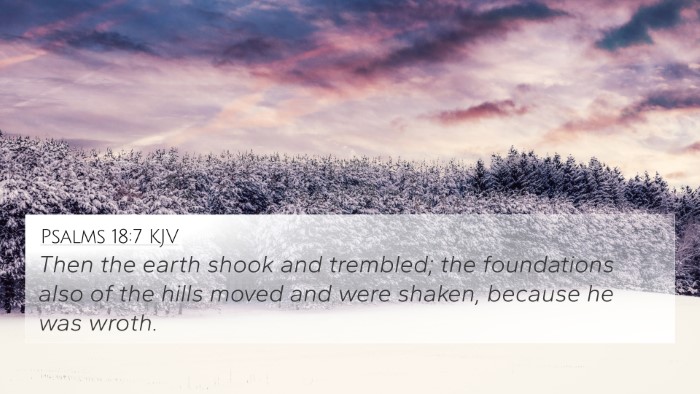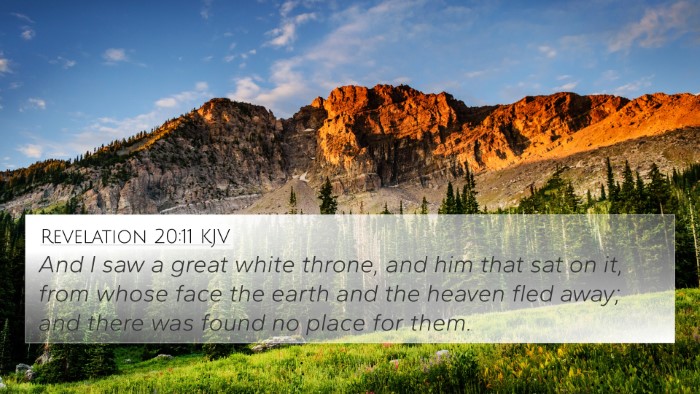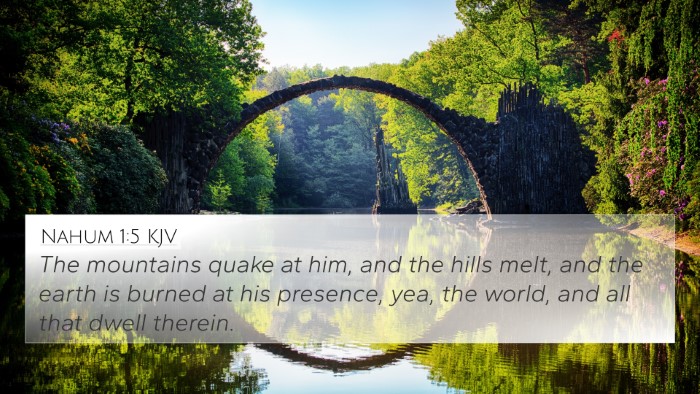Psalms 114:4 – Summary and Interpretation
Bible Verse: Psalms 114:4
Verse Text: "The mountains skipped like rams, the hills like lambs." (ESV)
Understanding Psalms 114:4
This verse captures a vivid imagery of nature responding to God's presence, emphasizing the extraordinary events that unfold in the wake of divine intervention. Various commentaries shed light on its meaning, focusing on how creation reacts to God's might and the reverence it invokes.
Commentary Insights
Insights from Matthew Henry
Matthew Henry describes the majestic attitude of the mountains and hills as they, metaphorically, "skip" in joyful acknowledgment of the Lord. This reaction symbolizes the transformative power of God's presence among His people, portraying aspects of creation as fully engaged in worship.
Insights from Albert Barnes
Barnes elaborates on the imagery of the mountains and hills, explaining that the "skipping" signifies an almost animalistic joy. He connects this to God's deliverance of Israel from Egypt, indicating that nature itself recognized the significance of God’s mighty acts. Thus, the verse relates to the overarching theme of God’s powerful presence being felt universally.
Insights from Adam Clarke
Clarke points out that the verse illustrates a miraculous event that accentuates God's power. He elucidates how the Earth reacts to divine commandments, reinforcing the idea that all created beings are under God’s authority, leading to an energetic and almost playful response to His might.
Thematic Connections and Biblical Cross-References
This verse connects deeply with several key themes found in Scripture, such as the power of God’s presence and the reaction of creation to divine intervention. Below are some notable cross-references that relate to Psalms 114:4:
- Exodus 14:21-22 – The parting of the Red Sea, showcasing God's mighty act of deliverance.
- Matthew 8:27 – Jesus calming the storm, demonstrating His authority over nature.
- Habakkuk 3:6 – A vision of God's power shaking the earth, echoing themes of creation's reaction.
- Romans 8:19-22 – Creation eagerly awaiting redemption, reflecting its acknowledgment of God.
- Isaiah 55:12 – The mountains and hills breaking forth in song, similar to the joyful response in Psalms 114.
- Job 38:1-4 – God's speeches to Job from the whirlwind, symbolizing the weight and authority of divine presence.
- Psalm 96:11-13 – The call for nature to rejoice before the Lord, reinforcing the worship theme.
- Psalm 100:1-3 – A universal call to worship highlighting joy in God’s presence.
- Psalm 68:15-16 – Referring to God’s majestic mountain, a metaphor for His strength and the joyous response it incites.
- Micah 1:3 – With the Lord coming forth, the mountains and hills respond, echoing the sentiments from Psalms 114.
Inter-Biblical Dialogue
The connections between these verses and Psalms 114:4 illustrate a significant dialogue across the Bible, where both Old and New Testaments highlight the theme of God’s might and the response of nature. This intertextuality enriches our understanding and enhances the Bible study experience through the use of tools for Bible cross-referencing.
Cross-Referencing for Deeper Study
For those engaged in Bible study, employing a Bible concordance or utilizing a Bible cross-reference guide can be invaluable. By leveraging these resources, one can easily identify Bible verses that relate to each other, offering a comprehensive outlook on God's sovereign action throughout Scripture.
The Importance of Contextual Analysis
Understanding Psalms 114:4 also requires looking at it within its larger context within the Psalms, particularly focusing on Israel’s history and their relationship with God. By engaging in comparative Bible verse analysis, one can discern the theological implications of God’s active presence and its effect on nature as well as humanity.
Conclusion
Psalms 114:4 serves as a powerful reminder of the joyful acknowledgment by creation of its Creator. Through the insights provided by public domain commentaries and the invaluable practice of cross-referencing, readers are invited to explore the depths of Scripture and its interconnectedness, leading to a richer understanding of biblical themes.
